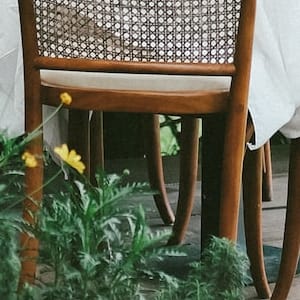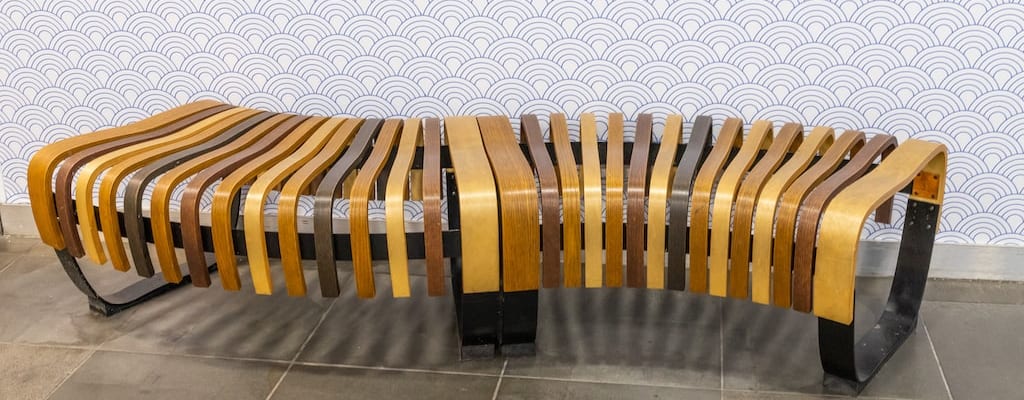fence the tables: Idiom Meaning and Origin
What does ‘fence the tables’ mean?
The idiom fence the tables means to secure or protect valuable possessions or resources.

Idiom Explorer
The idiom "kiddie table" refers to a separate, usually less prestigious, area or group designated for children, typically during a formal meal or event. It signifies a lower level of importance or inclusion, implying that the individuals in this group are not considered to be on the same level as the adults or main group.
The idiom "keep watch" means to stay vigilant or be on the lookout for potential dangers or threats. It implies being aware and alert to ensure the safety or security of someone or something.
The idiom "keep the wolf from the door" means to have enough money or resources to provide for one's basic needs and avoid poverty or hunger.
The idiom "keep one's cards close to one's chest" means to keep one's thoughts, plans, or intentions secret or hidden in order to maintain an advantage or not reveal too much information.
The idiom "keep a lid on" means to maintain control over something, especially to prevent it from becoming known or causing trouble.
The idiom "keep a close watch" means to closely monitor or observe something or someone, usually with the goal of ensuring their safety, security, or well-being.
The idiom "in safe hands" means that someone or something is being taken care of or protected by a trustworthy and capable individual or group.
The idiom "hold the purse strings" means having control or authority over financial matters or spending decisions.
The idiom "hold the cards" means to have the control or power in a situation.
Unveiling the Strategy
The idiom *fence the tables* is believed to have originated in the United States, although its exact time of origin is unclear. It is not a commonly used idiom, and there are limited instances of its usage in contemporary language. This suggests that it may have had more prominence in the past, but has since fallen out of popular usage.
The literal meaning of the idiom is not immediately apparent and requires further examination. The word "fence" typically refers to a structure used to enclose an area or to separate one space from another. In this context, the tables being fenced could be metaphorical, representing a division or separation of some sort. However, without additional context or examples of usage, it is difficult to determine the specific meaning of *fence the tables*.
Further research does not yield any specific examples or instances of the idiom being used in literature, media, or other sources. This lack of evidence makes it challenging to analyze the idiom in a broader cultural or historical context. It may be a regional or niche expression that remains largely unknown to the general public.
While the idiom *fence the tables* may currently exist as a linguistic curiosity, it raises intriguing possibilities for exploration. The limited information available about its origins and usage leaves room for speculation and interpretation. Perhaps it holds historical significance that has been lost to time, or maybe it is simply an obscure idiom that never gained widespread popularity.
A related idiom to *fence the tables* is *fence in*, which means to enclose or confine something within a boundary or limit. This idiom shares a similar concept of enclosure with *fence the tables*. Both idioms involve the idea of creating a physical or metaphorical barrier.
Another related idiom is *keep a lid on*, which means to keep something under control or hidden. While this idiom may not have an obvious connection to *fence the tables*, both idioms involve the idea of containment and control.
Similarly, the idiom *fence-sit* means to remain neutral or undecided in a situation. While the exact relationship between *fence the tables* and *fence-sit* may not be immediately apparent, both idioms involve the idea of being in a state of separation or indecision.
Additionally, *keep the wolf from the door* is another related idiom. It means to have enough money or resources to avoid poverty or hunger. This idiom shares a common theme with *fence the tables* of protection and security.
Lastly, *fend away* is an idiom that means to defend or protect oneself from something. This idiom relates to *fence the tables* in the sense that both involve acts of protection or defense.
Regardless of its relative obscurity, the idiom *fence the tables* underscores the richness and complexity of the English language. It serves as a reminder that even with the vast knowledge available at our fingertips, there are still linguistic mysteries waiting to be unraveled.
Example usage
Examples: 1. The wedding planner decided to fence the tables with elegant decorations to create a private and intimate atmosphere for the guests. 2. In order to maintain social distancing, the restaurant owner decided to fence the tables with partitions to ensure the safety of the customers. 3. The event organizer made sure to fence the tables with velvet ropes to separate the VIP area from the rest of the attendees. Analysis:
The idiom "fence the tables" is not a commonly used idiom in English. It appears to be a literal interpretation of the phrase, where the verb "fence" means to enclose or separate with a barrier.
In the first example, the idiom is used metaphorically to describe how the wedding planner is creating a private and intimate atmosphere for the guests by decorating the tables in an elegant and exclusive manner.
In the second example, the idiom is used to convey the idea of implementing physical barriers, such as partitions, to ensure social distancing and safety in a restaurant setting.
In the third example, the idiom is used to describe how velvet ropes are used as a way to enclose and separate a VIP area at an event from the rest of the attendees.
Overall, the idiom "fence the tables" is not a widely recognized or used expression in English, and its meaning and usage may vary depending on the context and interpretation.
More "verbs" idioms



